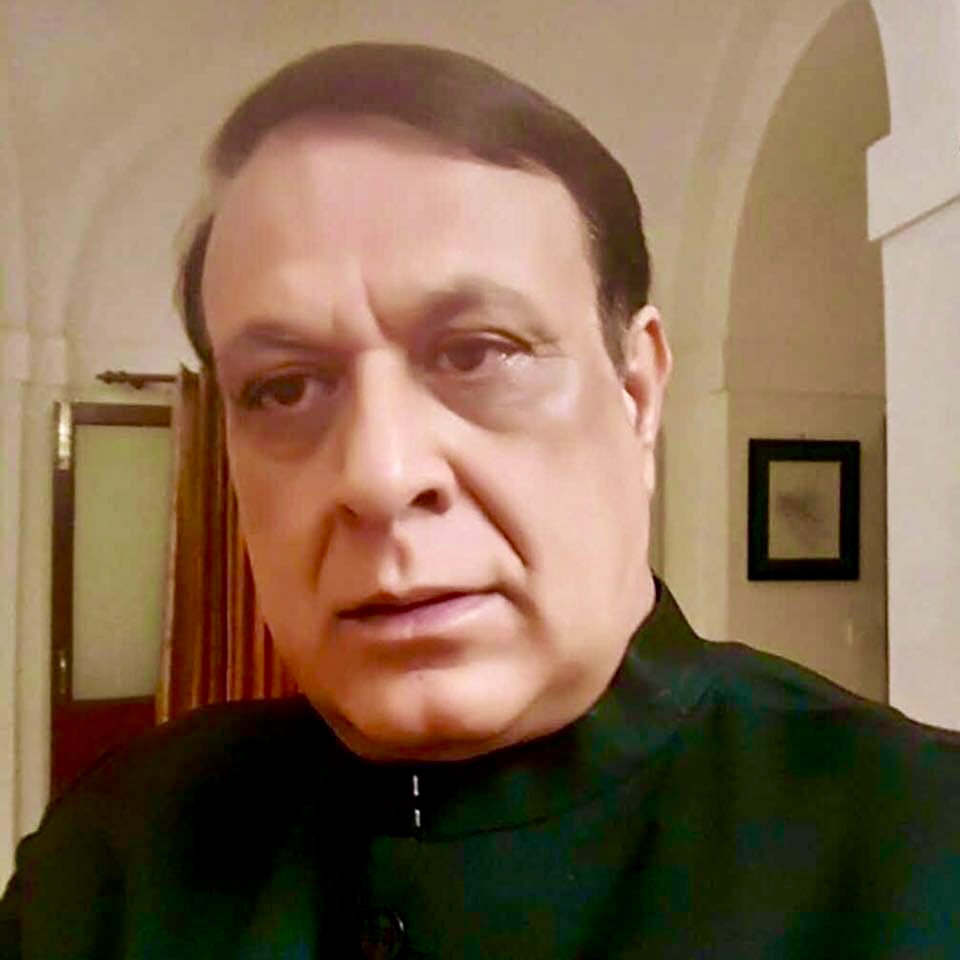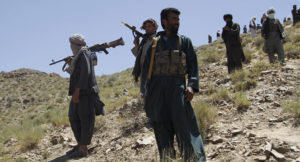“The pot of violence in Afghanistan will keep boiling”
While the government’s stated policy is that we would support the govt or the interim govt of Afghanistan, I’m certain that at an informal level we have the ways and means to access some segments of Taliban

As US Special Representative for Afghan Reconciliation visits New Delhi as part of his South Asian tour to further talks withthe Taliban representatives, Afghan government and other regional stakeholders, Aditi Bhaduri interviewed Maj. Gen. Bal Krishan Sharma, AVSM, SM & Bar (Retd)., who currently heads the Centre for Strategic Studies and Simulation at USI of India, New Delhi. Maj. Gen. Sharma specialises in Strategic Assessments, Scenario Building and Gaming, and is an expert on Afghanistan, Central Asia, and China.
How do you assess the current situation in Afghanistan?
The current security scenario in Afghanistan is fragile and mired in critical uncertainties. Taliban control about 50% of the territory there, are running shadow governments in the southern and eastern provinces, the spectre of jihadi violence has spread to the northern and the western provinces, and the incidents of sectarian violence have increased. President Ghani is said that since 2015 Afghan National Security and Defence Forces (ANSDF) have suffered more than 30,000 fatalities, which is an unsustainable rate of casualties. The news of withdrawal of US troops has further dampened the morale of the ANSDF.
Meanwhile, last summer the Taliban forces had launched operation ‘Khandaq’ and they took it as a big success. This year they have code named their spring offensive as ‘Fateh’ – that means victory – implying this is the culminating phase of their military campaign in Afghanistan. They believe that their cliché, “Americans have the watches and we have the time” is coming true. [The] Taliban are stepping up the tempo of military operations to negotiate from a position of strength.
I would like to flag another complicated dimension that makes peace look elusive in Afghanistan. Taliban are not monolithic, there are a number of other terrorist groups that operate in Afghanistan. As per the Afghan security experts, you have the foreign fighters, of which some 500 odd [are] Al Qaeda cadres, from the Islamic State of Khorasan Province (ISKP), which mainly comprises 70% of Orkazai and Afridi tribesmen from the north-western frontier, estimated to be around 4000. Then you have another rung of regional terrorist organisations, estimated to be about 2000, which includes Islamic Movement of Uzbekistan, East Turkestan Islamic Movement and Jamaite-ansur-allah, these are mostly active in north Afghanistan. Then the third group is a multitude of Pakistan-based terrorist outfits, estimated to be about 10,000, which includes Lashkar-e-Taiba, Jaish-e-Mohammed, Lashkar-e-Jhangvi, Tehreek-e-Taliban Pakistan and few more. Within the Afghan Taliban there are estimated to be 45000 fighters, dominated by the Haqqani network.
Negotiations with one group may not suit other groups. Given the factional nature of jihadists and their propensity to fight, the pot of violence in Afghanistan will keep boiling in the times to come. For now, there appears to be no light at the end of the tunnel.
India seems to be getting side-lined with its principled stand of talking only to the Afghan government. India did send representatives to the Moscow talks where the Taliban were also present. Should it not open direct communication with the group?
I would like to say that the ongoing reconciliation process per se is mired in uncertainties. On one track you have the High Peace Council, appointed by the former President Karzai, and the newly constituted 11 member group by President Ashraf Ghani, who have linkages with the Taliban. At the second track, you have the Moscow format, which comprises Russia, Iran, China, Pakistan, and even India on the side-lines. The third is the talks between Special Representative Zalmay Khalilzad and the Doha office representative Mullah [Abdul Ghani] Baradar. So these are the three levels at which negotiations are taking place.
 There is a zero sum approach to the whole reconciliation process. Taliban have not toned down their laid down conditions, that is non-recognition of govt of Afghanistan, non-recognition of the Constitution, release of some 30,000 odd prisoners, withdrawal of the American troops etc. Nor is there any clarity about what kind of political dispensation is going to come up. Will there be an interim government? What kind of power sharing will there be between Taliban and any new dispensation? The parliamentary election results are withheld, will the presidential elections take place by September 2019?
There is a zero sum approach to the whole reconciliation process. Taliban have not toned down their laid down conditions, that is non-recognition of govt of Afghanistan, non-recognition of the Constitution, release of some 30,000 odd prisoners, withdrawal of the American troops etc. Nor is there any clarity about what kind of political dispensation is going to come up. Will there be an interim government? What kind of power sharing will there be between Taliban and any new dispensation? The parliamentary election results are withheld, will the presidential elections take place by September 2019?
In the meanwhile, the Consultative Loya Jirga proceedings concluded on 03 May 5, 2019, after five days of deliberations. At least 3,200 delegates from across the country participated. The Grand Consultative Jirga has passed a 23-Article resolution. In sum they decided that a National Peace Consulting Body should be formed for negotiations with Taliban. Other decisions are to preserve the system of governance and security sector, no changes in the Islamic republic system and constitution, ceasefire with Taliban, diplomatic isolation of countries who provide financial military support to terrorists, non acceptance of interim government, continuation of election process, creation of peace office for Taliban in Kabul, withdrawal of foreign troops, commence intra Afghan talks, cooperation of regional and international organizations for peace, particularly United Nations and the government of Afghanistan, all members of UNSC should be present in the negotiations besides USA. Some of the aforesaid points are in contrast to stated Taliban, Pakistan and the US positions. We need to closely watch reactions of all stakeholders to this new development.
Under these circumstances it would be naïve for India to take a firm and concrete stand. India should not get trapped in the choppy waters of Afghan politics. India is the only country that has adopted a consistent position, and that is to support an ‘Afghan-owned, Afghan-led, and Afghan-controlled’ peace process. Other countries have taken a volte face, for example, Russia and Iran, have taken a diametrically opposite position vis vis their past support to the Northern Alliance; China too has been blowing hot and cold. India’s policy consistency and significant contribution in civil capacity building has made us popular across the politico-ethnic spectrum in Afghanistan. India should leverage this competitive advantage with the new political dispensation and the people of Afghanistan.
Now this does not mean that we don’t have the channels open with the Taliban. While the government’s stated policy is that we would support the govt or the interim govt of Afghanistan, but I’m certain that at an informal level we have the ways and means to access some segments of Taliban. India has a sophisticated understanding of Afghanistan dynamics and I am certain New Delhi will review and recalibrate its Afghan policy based on the evolving geopolitical realities in Afghanistan and in the region as a whole.
A US withdrawal from Afghanistan is sure to herald the entry of China in its place there. What would the implications be for India?
I do not subscribe to this perspective that the Chinese will have any direct involvement in Afghanistan. It is against their stated policy and they don’t get into this kind of a mess. The Chinese have other means and ways to secure and promote their interest in Afghanistan. What are their interests? First and foremost, they want to insulate the Belt and Road projects in Central Asia. They don’t want any spill-over of the violence from Afghanistan into Central Asia. Second, they don’t want northern Afghanistan becomes a base for the activities of the East Turkestan Islamic Movement to heighten their activities in the Xinjiang region. Third, they want to secure their investments in the Aynik copper mines and also they have plans to prospect oil in the northern Amu Darya basin in Afghanistan. China has denied that they will actually be deploying any troops to set up a so called brigade size base in the Wukhan corridor.
But indirectly, China is seeking an enhanced role in Afghanistan. They have offered to extend China Pakistan Economic Corridor to Afghanistan and may leverage their influence in Shanghai Cooperation Organisation (SCO) in which Kabul is an observer, to shape the geopolitical landscape in Afghanistan. The SCO declarations in Astana and in Qingdao about peace building in Afghanistan allude to this assessment. China understands that Russia is sensitive to an enhanced role by any other country in Afghanistan .The SCO is therefore a preferred option for China to allay Russian concerns and symbolically keep India in good humour.
Thanks for the interview. Insightful analysis of the dynamic situation.